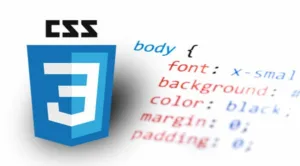I’m trying to make a card with a badge inside that extends beyond the card, but all the cards inside the parent should scroll horizontally, however I’m running into a problem where my badge element is hidden behind the overflow, which is a problem for me
selector .c: abstract badge
selector .b: abstract card
selector .a: abstract list cards
CSS
.a {
width: 150px;
height: 200px;
border: solid 1px silver;
margin: 200px;
/* important */
display: flex;
overflow-x: scroll;
}
.b {
width: 100px;
height: 100px;
border: 1px solid blue;
/* important */
position: relative;
}
.c {
width: 100px;
height: 100px;
border: solid 1px red;
margin-top:-50px;
/* important */
position: absolute;
}
HTML
<div class="a">
<div class="b">
<div class="c"></div>
</div>
<div class="b">
<div class="c"></div>
</div>
</div>
I solved this problem when I made padding for a list with overflow, but this created another problem in the layout, so I had to abandon this solution
example (its not solution for me)
.a {
width: 150px;
height: 200px;
border: solid 1px silver;
margin: 200px;
/* important */
display: flex;
overflow-x: scroll;
padding-top: 50px;
}
.a {
width: 150px;
height: 200px;
border: solid 1px silver;
margin: 200px;
/* important */
display: flex;
overflow-x: scroll;
}
.b {
width: 100px;
height: 100px;
border: 1px solid blue;
/* important */
position: relative;
}
.c {
width: 100px;
height: 100px;
border: solid 1px red;
margin-top: -50px;
/* important */
position: absolute;
}<div class="a">
<div class="b">
card
<div class="c">badge</div>
</div>
<div class="b">
card
<div class="c">badge</div>
</div>
</div>
 Question posted in
Question posted in 

3
Answers
I managed to come up with a solution, it doesn't look pretty, but it suits my needs. Apparently overflow: scroll is not at all friendly with positioning and does not allow elements beyond the height of the root element to be visually displayed (in this example it is a card), but if you try to position elements using negative values, then everything will work, because the element is not has absolute position settings and has its own height to which the scroll container is forced to adjust
you can use the z-index property to control the stacking order of elements. Set a higher z-index value for the badge (.c class) so that it appears above the overflowed content. Also, make sure that the parent container (.a class) has a position: relative property, as z-index only works on positioned elements.
Maybe this can get you a starting point. I did not "directly" answer the question but more did what I thought you were after.
I wrapped the container in a div and gave it a light green border just to "super center" the block in the window. I also added a
100vhto the body and super-centered my new contain on that – so no magic large margin needed, just let if flow in the window at the center.I created some grids for your elements and put the content using your sizing; I converted to
emso based on a common browser default I set to 16px font size thus100pxconverts to 100/16 or6.25emI then gave the card some rows/columns based on that – create more rows and columns as you see fit to get the badge and card label where you want them; then expand the number of rows/columns and place them within those to capture your desired layout. Using this type of technique I find I very seldom use any "position" like absolute etc. these days.